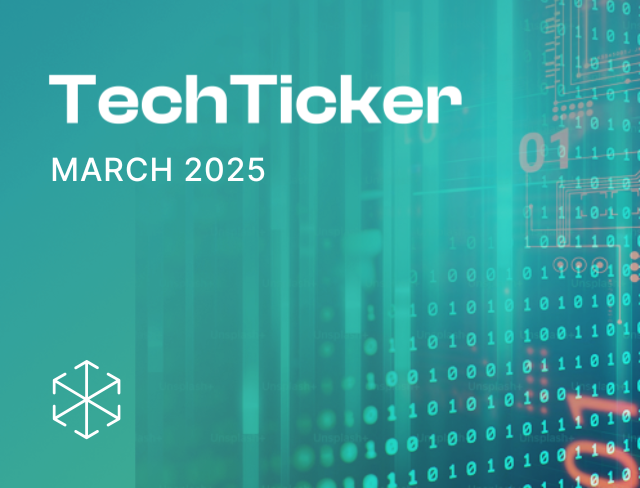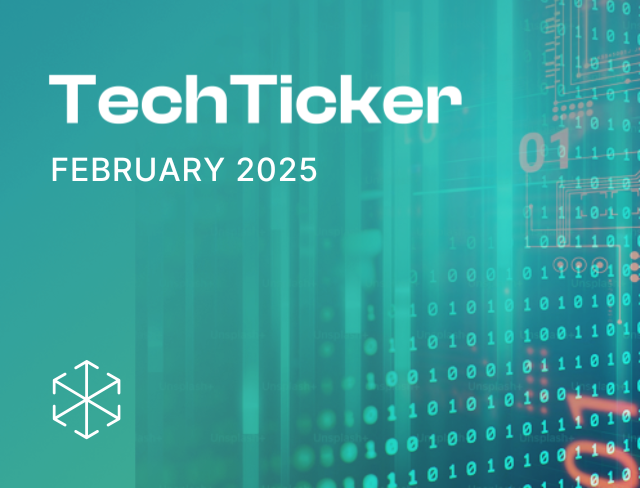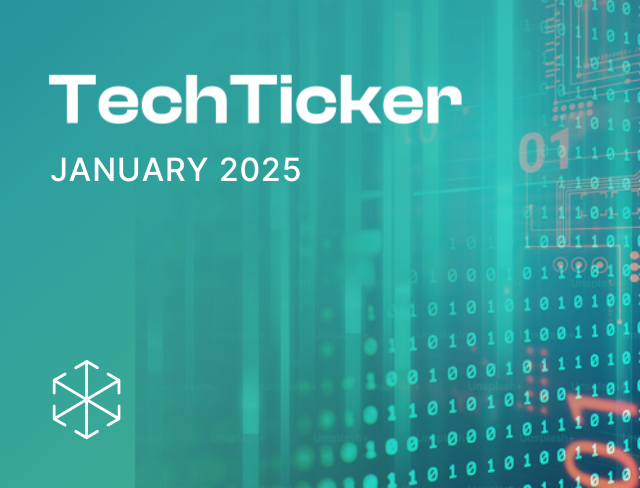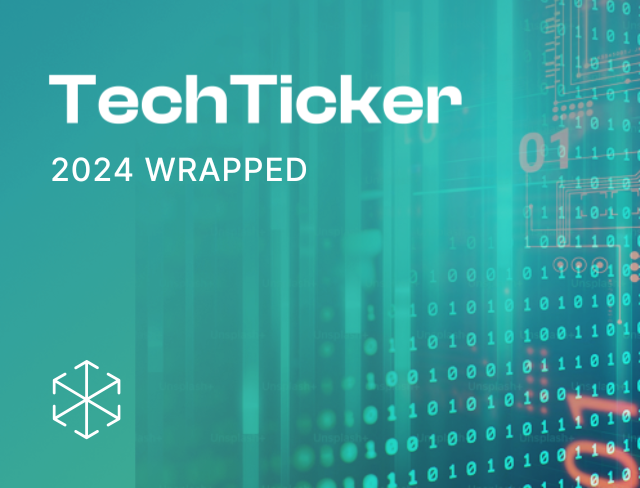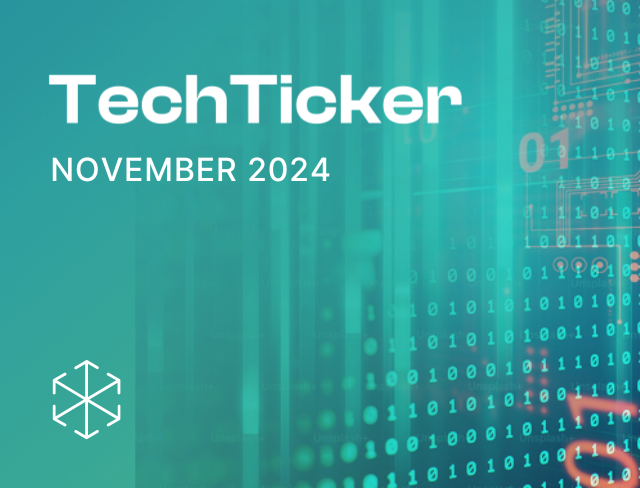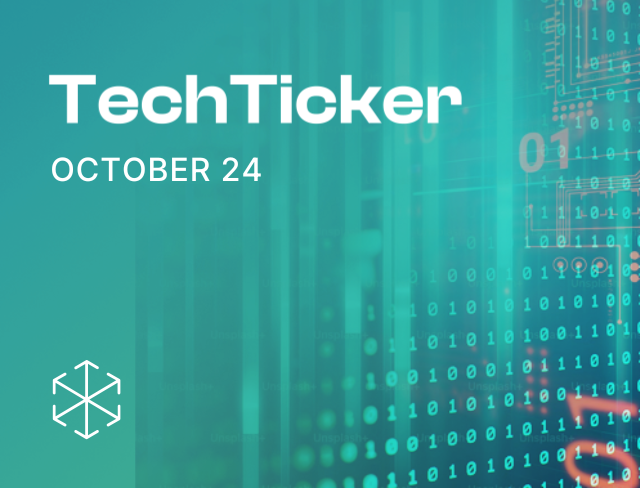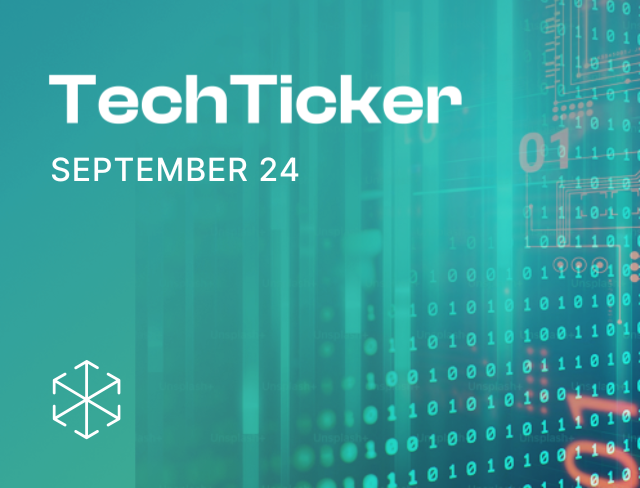Hello colleagues,
We’re back with Ikigai Law’s latest edition of the Tech Ticker and the latest from the world of tech policy.
‘Digital Technology Policy for India’s USD 5 Trillion Economy’ – An IAMAI report authored by Ikigai Law
We are delighted to announce the launch of the ‘Digital Technology Policy for India’s USD 5 Trillion Economy’, an IAMAI report authored by Ikigai Law (available here). The report was launched in New Delhi on 24 September 2019 by Baijayant Panda (national vice president, BJP), Aruna Sundararajan (former secretary, Department of Telecommunications), Rajat Kathuria (director, Indian Council for Research on International Economic Relations) and Sunil Jain (managing editor, Financial Express), followed by a panel discussion. The report examines policies, strategies and regulatory behaviours that can help India realize her vision of becoming a USD 5 trillion-dollar economy by 2024. For a quick look at all the recommendations made in the report, see Medianama’s summary of the recommendations here.
In other news from around the world, September seems to have been all about data.
Data is the new gold
Addressing the audience at ‘Howdy Modi’ in September, 2019 Indian Prime Minister Narendra Modi called data the ‘new oil’ and the ‘new gold’. His analogy stood in stark contrast to that proposed by Facebook’s Nicholas Clegg, who on his visit to India said that data should be treated like water and be allowed to flow freely across borders, not oil that could be traded like a commodity. Clegg spoke at multiple public sessions and reportedly held meetings with home minister Amit Shah, commerce minister Piyush Goyal and the national security adviser Ajit Doval while he was in India.
Information technology minister Ravi Shankar Prasad reaffirmed the government’s stance on data localisation, commenting that sensitive and super-sensitive data will need to be stored in India. He also advocated a ‘fine balance’ between data availability, utility, innovation and data privacy. The Digital Lenders Association of India asked the ministry of electronics and information technology (“MeitY”) to exclude ‘credit history’ from the category of sensitive data under the forthcoming data protection law. Meanwhile, the MeitY constituted a committee of experts under the chairmanship of Kris Gopalakrishnan, the former executive vice president of Infosys, to make recommendations non personal data in India. Also, parliamentary standing committees were constituted. The standing committee on information technology will be chaired by Dr. Shashi Tharoor.
Here are some other important developments from this month.
India–US Trade
India and the US failed to reach an agreement on a limited trade deal which was being negotiated towards the end of September 2019. The US has constantly raised concerns over Indian tariff on US’ goods and has remained dissatisfied with its market access in India whereas India has constantly pushed the US to restore its benefits under the Generalised System of Preferences. American president Donald Trump had earlier announced that the two countries may soon strike a trade deal which may be followed by another bigger trade deal.
Digital payments and finance
PhonePe and Google Pay may be required to limit their market share to 33% beginning April 2020. This limit is likely to be part of a new set of guidelines issued by the National Payments Corporation of India (“NPCI”), aimed at minimising market concentration. The NPCI also reported that UPI payments crossed 900 million for the first time in August 2019. RBI extended the deadline for semi-closed minimum detail PPIs to undertake full KYC from 01 September 2019 to 01 March 2020. The government also amended the Prevention of Money Laundering Act, 2002 to allow the use of Aadhaar for digital KYC, which is expected to boost the penetration of financial products. WhatsApp Pay is reportedly in the final stages of procuring regulatory clearances for the commercial launch of its payments service in India.
Others
The MeitY set up a dedicated task force to cater to the needs of the electronics industry and boost electronics manufacturing in India. The Indian government is further planning to invest INR 1,000 crore to create a topographic database to map the usage of drones in India. Telangana and Maharashtra governments may soon start using drones to deliver medicines. The Indian government may further set up a Medical Devices Authority to regulate the entire spectrum of medical devices used in India. Finally, Wipro and Indian Institute of Sciences have initiated a project to build an autonomous (driverless) car specially to be used on India’s patchy and chaotic roads.
That’s all from us for the moment, see you in November!

